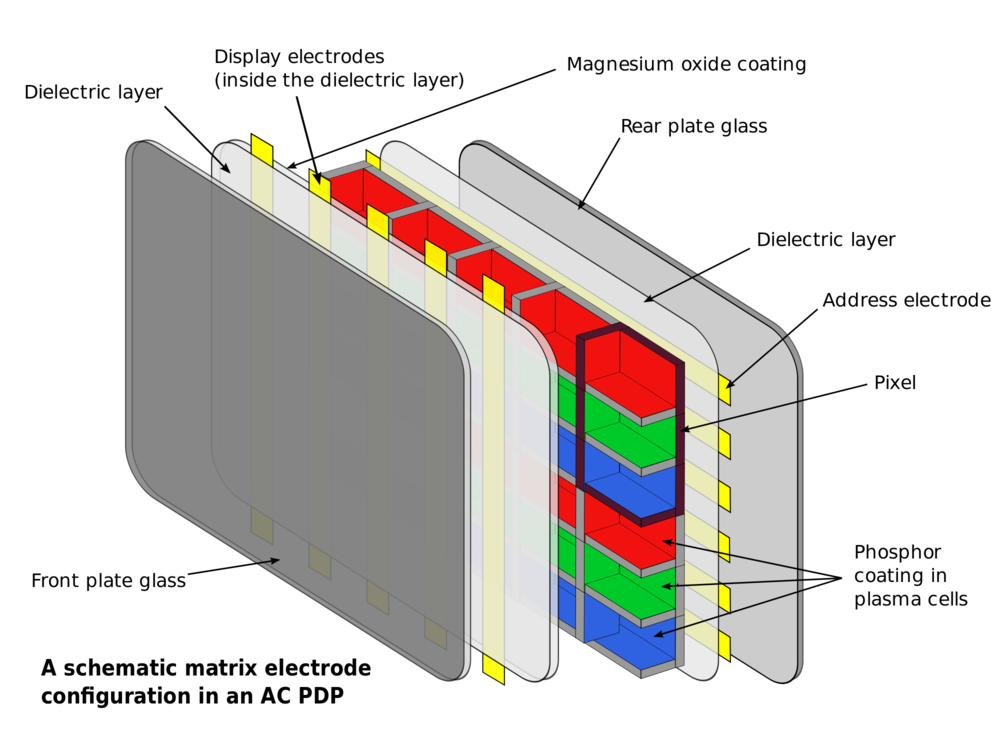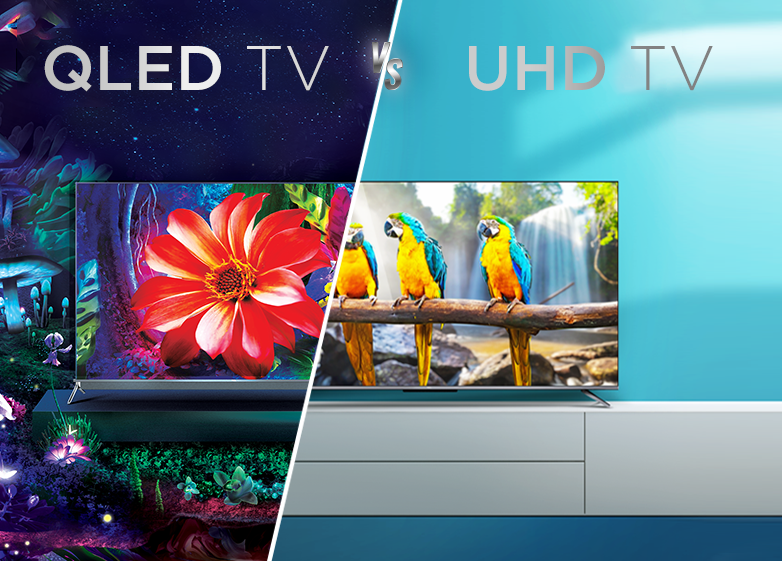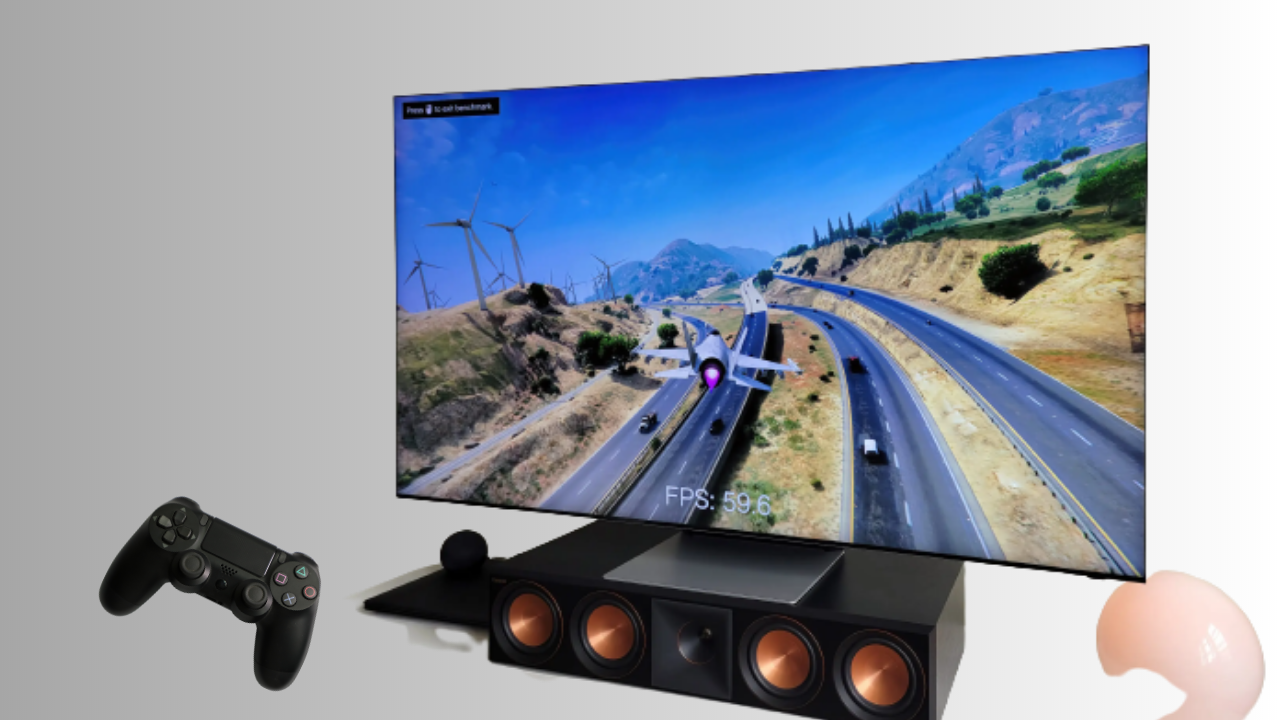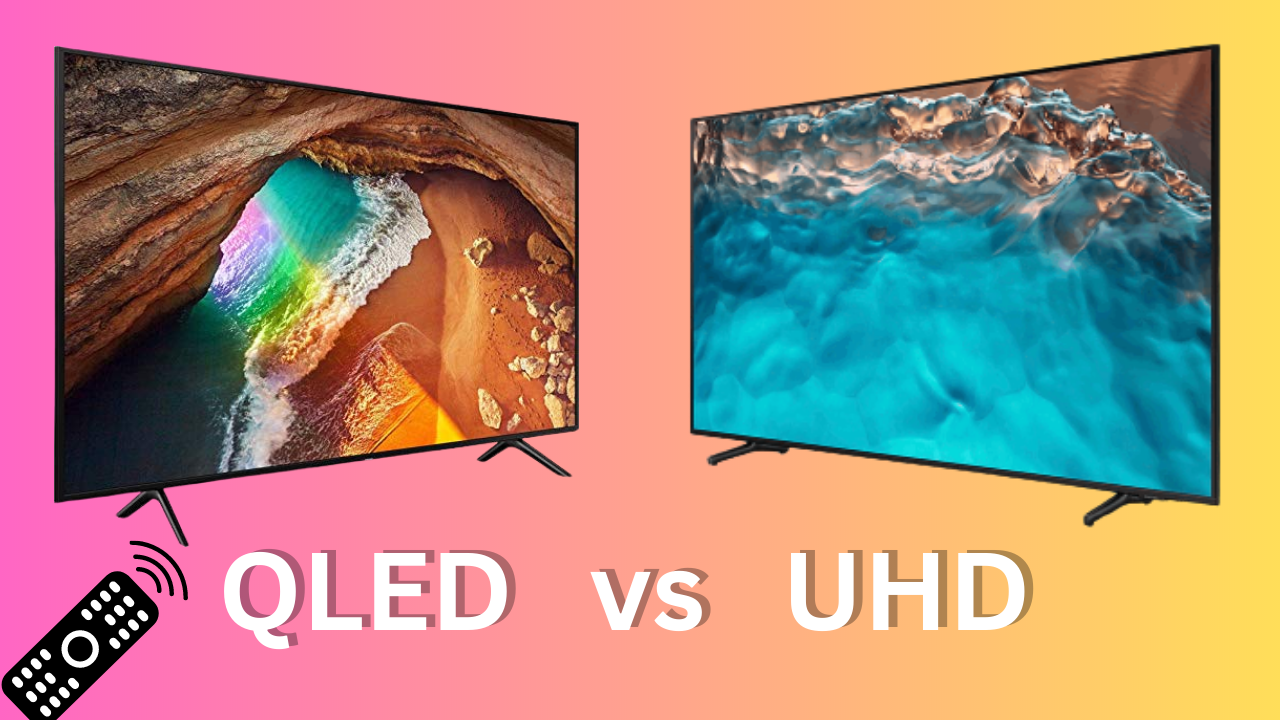In recent years, there has been a lot of buzz about QLED vs UHD televisions. These terms are often used interchangeably, but they actually refer to two different things. QLED is a display technology developed by Samsung, while UHD refers to the resolution of the television. In this article, we will explain the differences between Crystal UHD vs QLED, and help you choose the right television for your needs.
What is QLED Technology?

QLED stands for Quantum Light Emitting Diode. It is a display technology developed by Samsung that uses quantum dots to produce brighter and more vivid colors than traditional LED displays. The quantum dots used in QLED displays are microscopic particles that emit light at specific wavelengths. When light is shone on them, they produce pure, bright colors that are more vibrant and accurate than those produced by traditional LED displays. With QLED technology, you can enjoy stunning picture quality and vibrant colors on your TV, even after removing your TV from a wall mount. This advanced display technology ensures that every detail is captured with precision and accuracy, making your viewing experience truly immersive and enjoyable.
What is UHD?
An Ultra High Definition television has a resolution of Ultra High Definition. UHD is also sometimes referred to as 4K, which is a resolution of 3840×2160 pixels. This is four times the resolution of Full HD, which is 1920×1080 pixels. UHD provides sharper and more detailed images, making it ideal for larger screens.
QLED vs UHD: The Differences
The main difference between QLED and UHD is that QLED is a display technology, and UHD is a resolution. QLED displays use quantum dots to produce brighter and more vivid colors, while UHD displays have a higher resolution, providing sharper and more detailed images.
Picture Quality Comparison
When it comes to picture quality, both QLED and UHD have their strengths. QLED displays produce brighter and more vivid colors, making them ideal for watching movies and TV shows with vibrant color palettes. UHD displays, on the other hand, provide sharper and more detailed images, making them ideal for watching sports and other fast-moving content.
Price Comparison
QLED displays are generally more expensive than UHD displays. This is because QLED technology is still relatively new, and there are only a few manufacturers that produce QLED displays. UHD displays, on the other hand, are much more common, and are available at a wide range of price points.
Which One Should You Choose?
The choice between QLED vs UHD will depend on your personal preferences and needs. If you value color accuracy and brightness, then a QLED display may be the right choice for you. If you value image sharpness and detail, then a UHD display may be the better option. It is important to consider your viewing habits and the content you will be watching on your television, as well as your budget when making your decision. If you’re looking for a high-quality visual experience with excellent color reproduction and deep blacks, QLED technology may be the ideal choice for you. However, if you’re experiencing issues with your TV turning off, it’s important to check if there are any power supply or connectivity issues before contacting customer support.
Factors to Consider When Choosing Between QLED and UHD

When choosing between QLED vs UHD, there are several factors to consider. There are several factors that are important to consider:
Viewing habits
Consider the types of content you will be watching on your television. If you enjoy movies and TV shows with vivid color palettes, then a QLED display may be the best choice for you. If you watch a lot of sports and other fast-moving content, then a UHD display may be more suitable.
Budget
QLED displays are generally more expensive than UHD displays. If you have a limited budget, then a UHD display may be a better option.
Screen size
UHD displays are ideal for larger screens, as the higher resolution provides sharper and more detailed images. QLED displays are also suitable for larger screens, but may not provide the same level of image sharpness as UHD displays.
Room lighting
Consider the lighting in the room where the television will be located. If the room is well-lit, then a QLED display may be a better choice, as it can produce brighter images. If the room is dimly lit, then a UHD display may be more suitable, as it can provide better contrast and black levels.
QLED and UHD Gaming Performance Comparison

When it comes to gaming, both QLED vs UHD displays offer excellent performance. QLED displays are ideal for games with vivid color palettes, while UHD displays are ideal for games that require a high level of detail, such as first-person shooters. Both types of displays have low input lag, which is important for a smooth gaming experience.
QLED vs UHD: Future-Proofing
When it comes to future-proofing, UHD displays may be a better option. As more content is released in 4K resolution, UHD displays will become increasingly important. QLED displays, on the other hand, may become less important as other display technologies are developed.
Sound Quality Comparison
When it comes to sound quality, both UHD vs QLED displays are similar. Most televisions have built-in speakers that provide adequate sound quality for everyday use. If you want a more immersive audio experience, then a soundbar or home theater system may be a better option.
Energy Efficiency Comparison
When it comes to energy efficiency, both QLED and UHD displays are similar. Both types of displays are energy-efficient, and consume less power than older display technologies.
Other Considerations When Choosing a TV
When choosing a television, there are several other factors to consider, such as:
Smart TV features
Many modern televisions have built-in smart TV features, such as streaming apps and voice control. Consider whether you need these features when choosing a television.
Brand reputation
Consider the reputation of the brand when choosing a television. Consider brands with a reputation for quality and customer service.
Warranty
Consider the warranty offered by the manufacturer. Look for a television with a comprehensive warranty that covers parts and labor.
Conclusion
QLED vs UHD are two different technologies that offer different advantages. QLED displays provide brighter and more vivid colors, while UHD displays provide sharper and more detailed images. When choosing between UHD vs QLED, consider your viewing habits, budget, and the types of content you will be watching on your television. Both types of displays offer excellent performance and energy efficiency, making them a great choice for most consumers.
Frequently Asked Questions (FAQs)
Q.1 Which is better for gaming, QLED or UHD?
Both QLED and UHD displays offer excellent gaming performance, but the choice ultimately depends on the types of games you play. QLED displays are ideal for games with vivid color palettes, while UHD displays are ideal for games that require a high level of detail, such as first-person shooters.
Q.2 Should I choose a QLED or UHD display for my home theater?
The choice between QLED vs UHD depends on your personal preferences and viewing habits. If you prioritize color reproduction and brightness, then a QLED display may be the best choice. If you prioritize detail and sharpness, then a UHD display may be more suitable. Ultimately, it is important to consider your budget and the size of your viewing space when making your decision.
Q.3 Can QLED displays be used in bright rooms?
Yes, QLED displays are suitable for use in bright rooms, as they can produce brighter images than UHD displays. However, it is still important to consider the amount and direction of light in the room when choosing a display.



